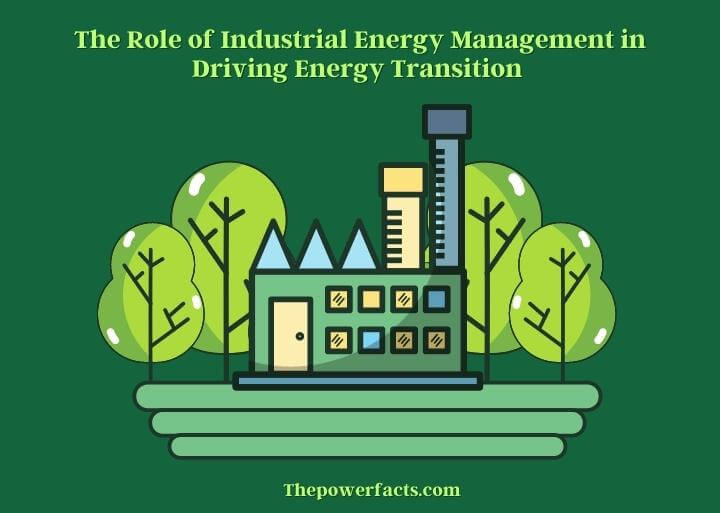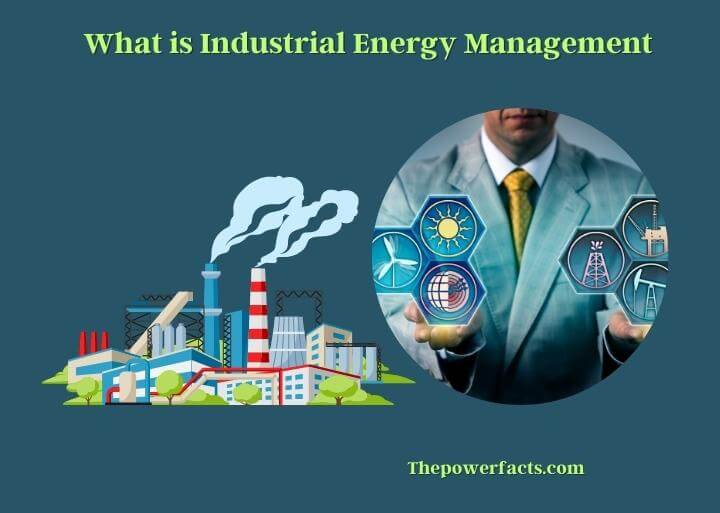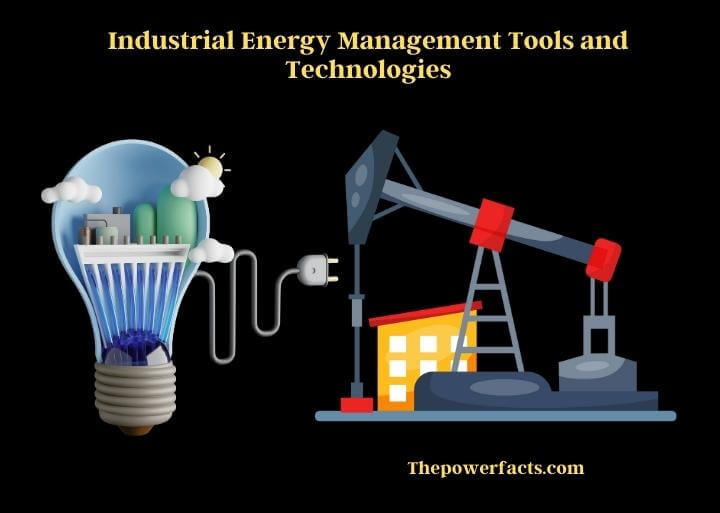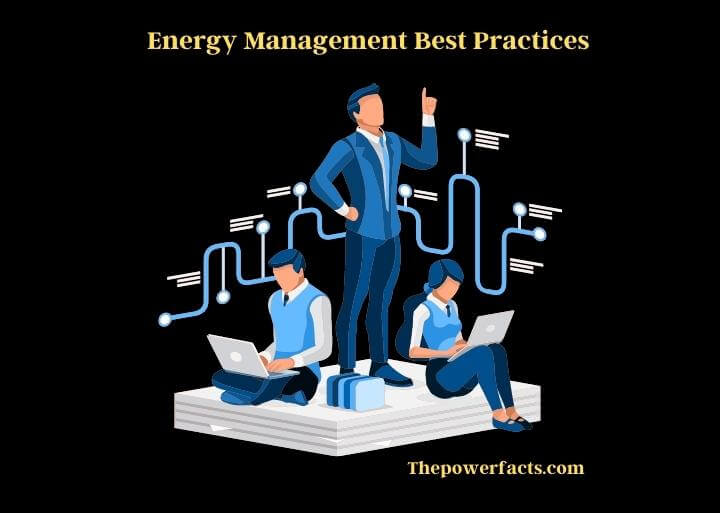The world is currently undergoing a major energy transition, driven by the need to reduce greenhouse gas emissions, address climate change, and promote sustainable development. Industrial energy management plays a crucial role in this transition, as industrial facilities account for a significant portion of global energy consumption and greenhouse gas emissions.

Industrial energy management involves the implementation of various strategies and technologies aimed at reducing energy consumption and improving energy efficiency in industrial processes. This can include measures such as energy audits, process optimization, and the adoption of energy-efficient technologies.
Effective industrial energy management can bring numerous benefits to industrial facilities, including reduced energy costs, improved energy efficiency, compliance with regulations, and enhanced corporate image. Furthermore, by reducing energy consumption and greenhouse gas emissions, industrial energy management can also contribute to global efforts to mitigate climate change and promote sustainable development.
What is Industrial Energy Management?
Industrial energy management refers to the practices, strategies, and systems that are put in place to optimize energy efficiency and reduce energy consumption in industrial processes. The main goal of industrial energy management is to minimize energy waste, reduce costs, and promote a sustainable approach to industrial production.

Industrial energy management involves a range of activities, including energy auditing, energy monitoring and control, and the integration of renewable energy sources such as solar, wind, and geothermal energy. By implementing effective energy management practices, industries can significantly reduce their carbon footprint, save on energy costs, and contribute to a more sustainable future.
Key Elements of Industrial Energy Management
The key elements of industrial energy management include:
Energy Auditing
This involves analyzing the energy consumption patterns of an industrial facility to identify inefficiencies and areas for improvement. By conducting an energy audit, industries can identify energy-saving opportunities and implement effective energy management strategies.
Energy Monitoring and Control
Energy monitoring and control systems enable industries to track energy consumption in real time, allowing them to identify energy waste and optimize energy use. These systems provide insights into energy consumption patterns, enabling industries to make informed decisions on energy efficiency improvements.
Renewable Energy Integration
Integrating renewable energy sources such as solar, wind, and geothermal energy into industrial processes can significantly reduce carbon emissions and energy costs. By investing in renewable energy, industries can achieve energy independence and contribute to a more sustainable future.
Energy Efficiency Optimization
Effective industrial energy management practices promote energy efficiency optimization, leading to reduced energy consumption and costs. By optimizing energy efficiency, industries can achieve significant cost savings while contributing to a more sustainable future.
Industrial Energy Management Tools and Technologies
There are several tools and technologies available for industrial energy management, including:

Energy Management Systems (EMS)
These systems provide a centralized platform for monitoring and controlling energy consumption in industrial facilities. They enable real-time monitoring of energy use, allow for automated control of energy-consuming systems, and provide data analytics for energy optimization.
Building Automation Systems (BAS)
BAS technology enables automation and control of building systems such as lighting, HVAC, and ventilation systems. These systems can be integrated with EMS platforms for effective energy management.
Energy-efficient Lighting
Switching to energy-efficient lighting solutions such as LED lights can result in significant energy savings for industrial facilities. LED lights consume less energy, have longer lifespans, and require less maintenance compared to traditional lighting solutions.
Energy-efficient HVAC Systems
HVAC systems consume a significant amount of energy in industrial facilities. Upgrading to energy-efficient HVAC systems can result in significant energy savings. Technologies such as variable speed drives, high-efficiency motors, and demand-controlled ventilation can improve HVAC energy efficiency.
Renewable Energy Technologies
Incorporating renewable energy technologies such as solar panels, wind turbines, and geothermal systems into industrial facilities can significantly reduce energy costs and carbon emissions.
Energy Monitoring and Tracking Software
These tools enable energy data tracking and analytics, allowing for informed decision-making on energy management strategies. They provide real-time monitoring of energy consumption and can identify areas of energy waste.
Energy Management Best Practices
Energy management best practices include:
- Conducting regular energy audits to identify areas for improvement in energy efficiency.
- Implementing energy-efficient lighting solutions such as LED lights.
- Upgrading HVAC systems to energy-efficient models and optimizing their use.
- Investing in renewable energy sources such as solar and wind energy.
- Implementing energy monitoring and tracking systems to identify energy waste and optimize energy use.
- Establishing an energy management team to oversee energy efficiency initiatives and ensure continuous improvement.
- Setting energy consumption reduction goals and regularly tracking progress towards those goals.

Benefits of Industrial Energy Management in Energy Transition
Industrial energy management plays a crucial role in driving the energy transition toward a more sustainable future.
Reduced Energy Costs
Implementing energy management strategies can significantly reduce energy costs for industrial facilities, leading to cost savings and increased profitability.
Improved Energy Efficiency
Effective energy management practices lead to improved energy efficiency, resulting in reduced energy consumption and carbon emissions. This helps to meet energy reduction targets and contribute to a more sustainable future.
Enhanced Corporate Image
Implementing sustainable energy management practices can enhance a company’s corporate image, demonstrating its commitment to sustainability and responsible energy use.
Compliance with Regulations
Many countries have established regulations and targets for energy consumption and carbon emissions reduction. By implementing energy management strategies, industrial facilities can comply with these regulations and avoid potential penalties.
Increased Competitiveness
Adopting sustainable energy management practices can give companies a competitive advantage, attracting environmentally conscious customers and investors.
Reduced Environmental Impact
Effective energy management practices reduce the environmental impact of industrial processes, minimizing carbon emissions and reducing the ecological footprint of industrial facilities.
You have to know that the Renewable Fuel Standard is a regulation that requires transportation fuel sold in the United States to contain a certain percentage of renewable fuels.
Challenges of Industrial Energy Management
While industrial energy management provides numerous benefits, it also presents a few challenges that must be addressed. Here are some of the common challenges of industrial energy management:
- Implementing energy management strategies requires a significant initial investment, which can be a challenge for many industrial facilities, especially small and medium-sized enterprises.
- Many industrial facilities may not be aware of the benefits of energy management, or they may lack the knowledge and expertise to implement effective energy management practices.
- Implementing energy management strategies may require changes to existing processes and systems, which can be met with resistance from employees and management.
- Effective energy management requires the collection and analysis of energy data, which can be time-consuming and challenging for industrial facilities without proper tools and expertise.
- TEnergy management technologies and practices are constantly evolving, and industrial facilities must keep up with the latest developments to remain competitive and effective.
- Compliance with energy regulations can be complex and challenging, especially for companies operating in multiple jurisdictions with different regulatory frameworks.
- Financing energy management projects can be challenging for industrial facilities, especially those without access to traditional financing options.
How Can Industrial Energy Management Programs Support Community Energy Outreach Initiatives?
Industrial energy management programs play a crucial role in supporting community energy outreach initiatives. By implementing efficient energy monitoring and conservation strategies, industrial facilities can reduce their overall energy consumption and environmental impact, thereby contributing to the success of energy outreach initiatives within the community.
Wrapping Up a Conclusion
Industrial energy management plays a crucial role in driving the energy transition toward a more sustainable future. By adopting effective energy management practices, industrial facilities can reduce energy costs, improve energy efficiency, comply with regulations, and enhance their corporate image. However, implementing energy management strategies also presents several challenges, including high initial investment, lack of awareness, and resistance to change.
To address these challenges, industrial facilities must work with energy management experts and policymakers to develop and implement effective energy management strategies that balance economic, social, and environmental objectives. By doing so, they can achieve the benefits of energy management while contributing to a more sustainable future.
Industrial energy management is a critical component of the energy transition, and its importance will only continue to grow as we move toward a more sustainable future. By working together, industrial facilities, energy management experts, and policymakers can create a brighter and more sustainable future for generations to come.